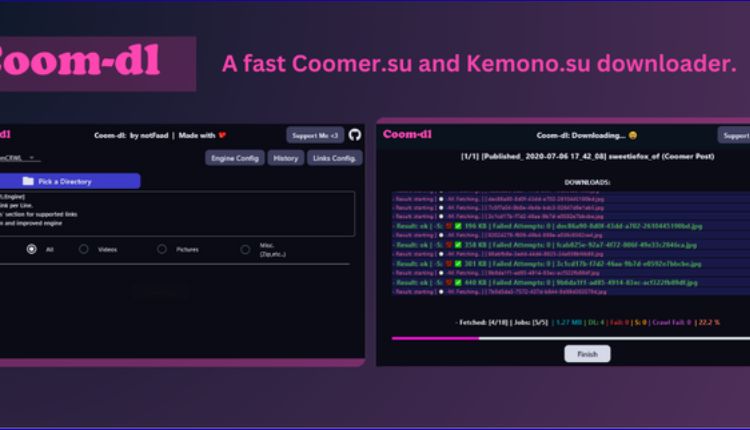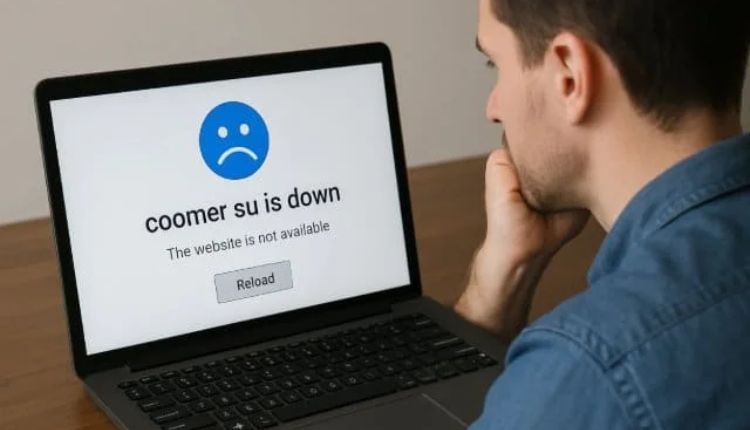One such term gaining attention in numerous online groups is “coomers su.” This word has commenced surfacing in forums, meme pages, areas of interest groups, and virtual discussions throughout systems. Though it’d sound unexpected to many, inside specific circles, it includes layered meanings and cultural importance. To understand this term, it is vital to discover the context, usage, and institutions behind “coomers” and its relevance in virtual spaces.
- Origins and Evolution of the Term CoomersSu
- Coomers Su and Its Role in Meme Subculture
- The Psychological Layers Behind Coomers Su
- How Online Communities Embrace or Reject Coomers
- Coomers: Su as a Reflection of Digital Isolation
- Artistic Interpretations and Creative Adaptations
- The Role of Anonymity and Identity
- The Blurring of Reality and Virtuality
- Social Commentary and the Future
- The Bottom Lines
Origins and Evolution of the Term CoomersSu
The root word “coomers su” originates from the internet meme way of life, commonly used to explain an exaggerated stereotype of someone who’s excessively addicted to personal content material or compulsive behaviours associated with instantaneous gratification. “Su” in this context appears to be a stylised or shortened addition, likely originating from username tendencies, slang adjustments, or abbreviations within unique online systems. Together, “coomers” may want to talk to a community, a satire account, or a meme label that reviews or parodies excessive virtual behaviours.
The evolution of such phrases often starts on platforms like Reddit, 4chan, or niche Twitter accounts before spreading to wider audiences. In many cases, these expressions are first of all created in jest but slowly form their own identification in the internet ways of life, reflecting deeper subject matters together with loneliness, net dependence, or escapism.
Coomers Su and Its Role in Meme Subculture
Memes play a primary role in how digital groups explicitly share reports. Within meme subculture, “coomers su” represents each a shaggy dog story and a reference to certain internet life. Often illustrated with exaggerated, cool animated film characters or humorous text overlays, the coomer meme is used to symbolise compulsive behaviours, especially concerning digital intake. “Coomers” memes may take this a step further by way of combining mockery with a deeper narrative of virtual burnout or emotional disconnect.
This blending of humour and social observation is an indicator of the modern way of life. By laughing on the absurdity of a “coomer”, customers are also subtly confronting the impact of internet habits on their intellectual fitness and private lives. In this manner, “coomers su” content isn’t just mindless amusement but rather a coded form of dialogue approximately present-day internet dependency.
The Psychological Layers Behind Coomers Su
Beneath the surface humor, the term “coomers su” may additionally spotlight psychological issues that many customers subconsciously relate to. The repetitive cycle of scrolling, consuming content, and searching for validation is not unusual for those deeply embedded in virtual environments. “Coomers” may act as a satirical self-portrait for folks who experience being stuck in those loops, unable to escape the pull of their online addictions.
In positive boards, discussions associated with “coomers” veer into greater critical territories. Some customers have ‘specific issues’ about their compulsive behaviours, looking for community advice or team spirit via humour. The meme will become a mechanism to express vulnerability, making serious conversations easier at hand and less stigmatised.
How Online Communities Embrace or Reject Coomers
Every internet way of life develops its very own language and identification, and no longer are all receptive to terms like “coomers su”. While some include it as part of their community humour, others view it as reductive or dangerous. There’s a developing focus around how labels and stereotypes, even humorous ones, can affect mental health or give a boost to dangerous behaviours.
On structures like Discord or Reddit, you will discover threads debating whether or not using “coomers” is appropriate or if it crosses into shaming. Some argue that those labels are vital to confront digital addiction brazenly, even as others pressure the need for empathy and nuance. This department shows how language in online lifestyles can be both powerful and polarizing.
Coomers: Su as a Reflection of Digital Isolation
One of the recurring topics tied to “coomers” is the concept of isolation in the virtual age. As more people spend hours online, replacing real-life interactions with digital engagement, the sensation of loneliness will increase. The discernment of the “coomer” may be visible as a caricature of this phenomenon—someone so eaten up with the aid of digital gratification that real-life social bonds go to pot.
This commentary is in particular applicable in a post-pandemic world, in which many have experienced extended virtual immersion. The popularity of terms like “coomers su” may also mirror a developing cultural awareness that something vital is being misplaced amidst the countless scrolling and content material consumption.
Artistic Interpretations and Creative Adaptations
Internet artists, meme creators, and illustrators have followed the “coomers su” aesthetic in their content. Often exaggerated and stylised, these artistic endeavours portray the common individual in absurd or tragic situations, combining humour with existential undertones. These pieces are often shared in ironic meme businesses or digital art forums where surrealism meets satire.
The creativity surrounding this time period suggests that “coomers” is more than just a throwaway meme. For a few, it serves as a creative outlet to critique society, explicit non-public struggles, or mirror how online behaviours have formed their worldview. These artistic contributions raise the discourse, pushing the limits of what net slang can mean.
The Role of Anonymity and Identity
Anonymity is central to the “coomers su” trend. Most customers who share related content material achieve this under pseudonyms or faceless profiles. This lets them be brutally honest about their conduct without fear of real international judgement. The anonymous surroundings of certain online groups give a fertile floor for exploring taboo subjects with humour and detachment.
However, this anonymity also offers demanding situations. It can blur the line between satire and truth, making it hard to figure out when someone is joking or simply reaching out for help. In the “coomers” space, humour regularly masks deeper emotional or psychological pain that would in any other case stay unstated.
The Blurring of Reality and Virtuality
Another charming issue of “coomers” is the way it highlights the blurring line between fact and virtual existence. Many virtual users now spend more waking hours interacting online than they do in actual international environments. The “coomer” meme will become a symbolic illustration of people who have lost this balance.
This phenomenon is exacerbated by means of algorithms, content loops, and systems designed to keep users engaged without end. As human beings grow to be extra enmeshed in virtual worlds, the capability to detach or set limitations becomes increasingly more difficult. In this context, “coomers su” isn’t only a period—it turns into a symbol of a large cultural problem that many experience but few articulate directly.
Social Commentary and the Future
As internet tradition evolves, phrases like “coomers” will probably go through transformation. Some terms fade into obscurity at the same time as others end up entrenched in virtual lexicons. The enduring relevance of this term will depend upon how communities choose to interact with its message, whether or not as a joke, a critique, or a name for attention.
In academic and cultural research, pupils might also subsequently look at “coomers su” as part of the broader observation on digital addiction, loneliness, and children’s culture in the 21st century. It displays the complex approaches in which humour, identification, and generation intertwine in current society.
The Bottom Lines
The word “coomers” might seem an area of interest or unserious at first glance, but it encapsulates a wealthy tapestry of virtual behavior, emotional complexity, and cultural critique. From meme origins to psychological implications, it opens a conversation about how we engage with the internet and the way it shapes our identities. Whether embraced, mocked, or reinterpreted, the presence of “coomers” in online discourse shows how deeply intertwined humor and honesty are in today’s virtual communities.





